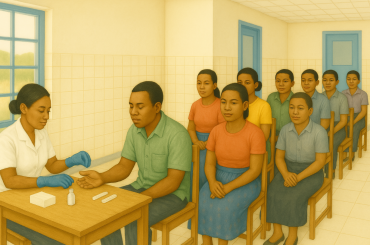

Fabrice Kämpfen
Assistant Professor, School of Economics, University College Dublin
Fabrice Kämpfen is an Assistant Professor at the School of Economics at University College Dublin (UCD), Ireland. He is also a research affiliate at the Population Studies Center at the University of Pennsylvania in the US, an external affiliate at the Lausanne Center for Health Economics at the University of Lausanne in Switzerland, and a member of the Health Econometrics and Data Group (HEDG) at the University of York in the UK.
In 2023, he was selected as one of the first members of the new Young Academy of Ireland (YAI) by the Royal Irish Academy.
He is the co-chair (with Selim Gulesci (TCD) and Arcangelo Dimico (QUB)) of the “Network of Irish-based Development Economists (NIDE).” The main objectives of NIDE are to create a network of development economists in Irish institutions, facilitate idea exchange and collaboration among members, support Ireland-based junior researchers in development economics, and enhance Ireland’s contribution to the field.
He holds a Ph.D. in Economics, and his main research interests are Health Economics, Development Economics, and Applied Microeconomics. He is also interested in reporting heterogeneity and techniques to address it in empirical applications.
He is the coordinator of a research for development (r4d) project funded by the Swiss Programme for Research on Global Issues for Development. This international project, which supports research in India, Sri Lanka, the Philippines, and Malawi, aims to assess the impact of chronic illness on a wide range of outcomes, such as health care expenditure, work capacity, socioeconomic outcomes, and health and mortality, to name a few. More information on this project can be found here.
Since 2024, he has been a member of the editorial board of Nature – Scientific Reports.
Recent work by Fabrice Kämpfen
-

Why knowing your HIV status can be fatal when there are no treatment options
In 2004, a randomised controlled trial provided individuals in Malawi with information about their HIV status, despite treatment being unavailable in the country at the time. Did knowing one’s diagnosis help or hurt?
Published 02.04.25